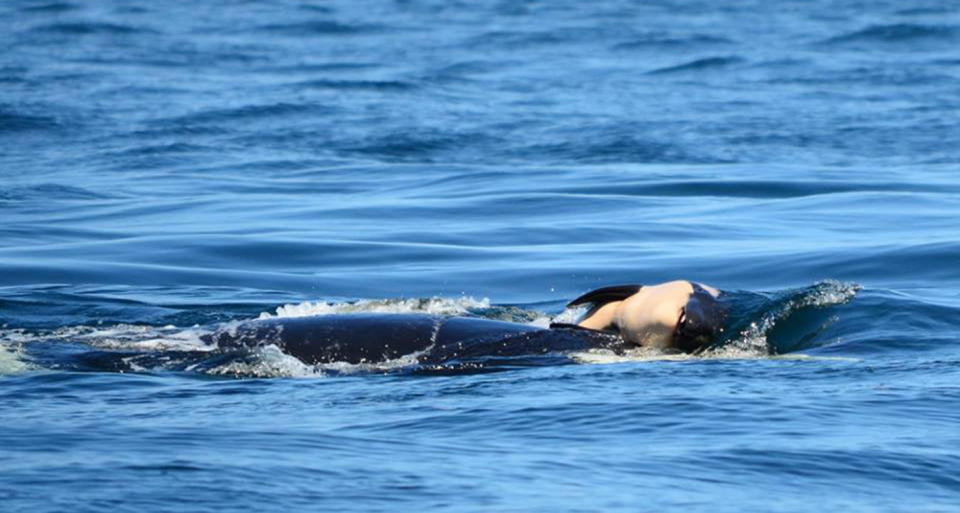'Unbelievably sad': Orca carries around her dead calf for two days
A grieving orca mother who was reluctant to let her deceased calf go after it passed away was seen carrying it around on her head.
The newborn southern resident killer whale had been reported to be swimming with its mother and other members of its pod mid-morning on July 24 near Victoria, British Columbia in Canada.
But by the time a team from the Center for Whale Research arrived to take pictures of the newborn, it sadly was no longer alive.
Its mother, known as J35, was seen repeatedly diving to retrieve its carcass as it was sinking.
She was trying to support it on her forehead while she transported it through rough seas toward San Juan Island.

Wildlife biologist for the Northwest Fisheries Science Center Brad Hanson has seen this behaviour before and described it as “unbelievably sad.”
A resident who witnessed the grieving mother and pod recalled, “At sunset, a group of 5-6 females gathered at the mouth of the cove in a close, tight-knit circle, staying at the surface in a harmonious circular motion for nearly 2 hours.”
“As the light dimmed, I was able to watch them continue what seemed to be a ritual or ceremony.”
The mother was still seen pushing her newborn at sunset on July 25.
Research scientist Deborah Giles told The Seattle Times: “She carried the calf in her womb from 17 to 18 months, she is bonded to it and she doesn’t want to let it go. It is that simple. She is grieving.”

According to the Center for Whale Research dolphins and killer whales have been known to transport their dead offspring for up to a week.
Unfortunately, about 75 per cent of newborns have not survived for long after birth in the past 20 years and as a result the southern resident killer whale population has been classified as endangered.
In the past three years all pregnancies have failed to produce viable offspring.
It’s believed the main cause of the poor reproduction and population decline is related to food.


